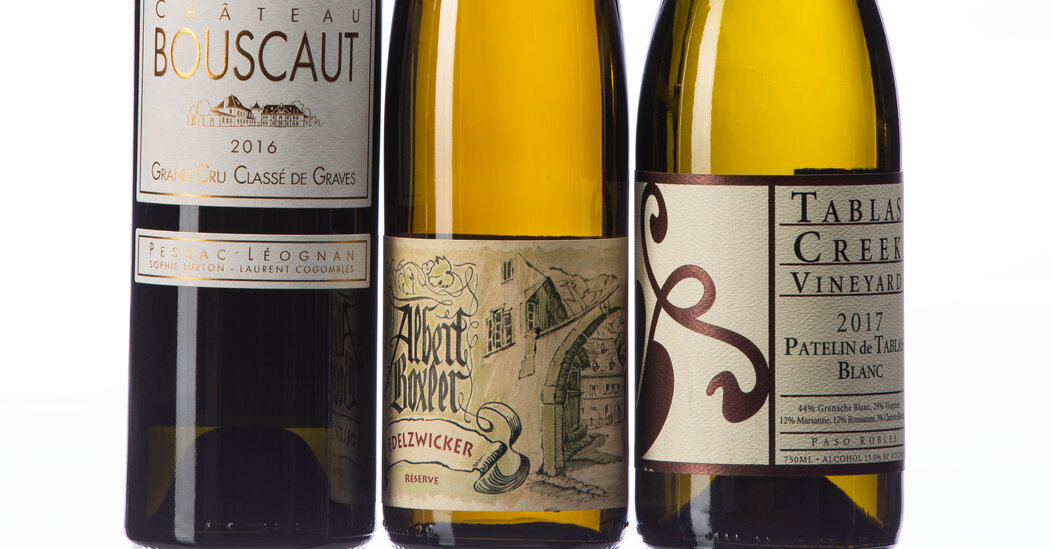
Red blends are popular right now, and I’m not speaking of classical blends like Bordeaux, Châteauneuf-du-Pape or Chianti.
When people refer to red blends today, they are generally using a marketing term for popular category of mass-market red wines, often quite sweet, that happen to blend several red grapes.
Rarely, however, do we think of white blends. Possibly that’s because the most popular mass-market whites are all varietal wines, including chardonnay, pinot grigio, sauvignon blanc and moscato.
Even more discerning wine consumers tend to think of varietal whites, whether the rieslings of Germany, the chardonnays of Burgundy or the chenin blancs of Vouvray. The classic white blends may not be as numerous or as illustrious as among reds, but I can think of plenty.
White Bordeaux is an example of a potentially great white blend that is not particularly popular currently. Other, more modest white blends abound, like Austrian gemischter satz, Alsatian edelzwicker and whites from the Rhône Valley, with the exception of Condrieu, which must be made exclusively with viognier.
This month we will drink white blends to get a sense of what they are all about. Here are the three wines I suggest:
Tablas Creek Paso Robles Patelin de Tablas Blanc 2017 $25
Albert Boxler Alsace Edelzwicker Réserve 2018 (Kermit Lynch Wine Merchant, Berkeley, Calif.) $27
Château Bouscaut Pessac-Léognan Blanc 2016 (Wineberry America, New York) $45
You don’t have to get these exact vintages. You don’t even need to get the same wines. The Tablas Creek is a Rhône-style blend from California. You could certainly substitute an actual Rhône blend, not to mention numerous other American white blends. Martha Stoumen’s Post Flirtation from Northern California and Montinore Estate’s Borealis from the Willamette Valley in Oregon are two examples that come to mind.
Or you could select other Alsatian blends if you can’t find the Boxler, or a gemischter satz, if you are curious about this style from Vienna. It would be great to pick out another white Bordeaux if you can’t find the Bouscaut. These wines, particularly those from Pessac-Léognan, tend to be expensive, but they can be superb.
If you opt for a less expensive white Bordeaux, from Graves, Entre-Deux-Mers or another appellation, just make sure it’s a blend. Some inexpensive bottles can be made entirely of sauvignon blanc.
These wines ought to be dry, though a little richer than, say, most Italian whites or Muscadets. Perhaps a poultry dish, or a meatier fish, would be in order.
As usual with whites, serve them chilled but not refrigerator cold. If you’ve had them in the fridge, take them out for about 30 minutes before serving.
Join the Discussion
Eric Asimov, The New York Times wine critic, is discussing white wine blends. Sample wines, and as you sip, ask yourself these questions. Join the conversation by sharing your thoughts in the comments of this article.
Preconceptions
Do you care whether a white is a varietal wine?
Characteristics
Can you sense the separate components of the wine?
Blend
Does the wine come across as harmonious?
Follow NYT Food on Twitter and NYT Cooking on Instagram, Facebook, YouTube and Pinterest. Get regular updates from NYT Cooking, with recipe suggestions, cooking tips and shopping advice.


